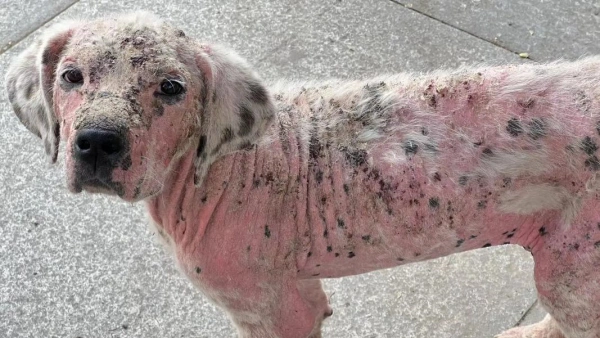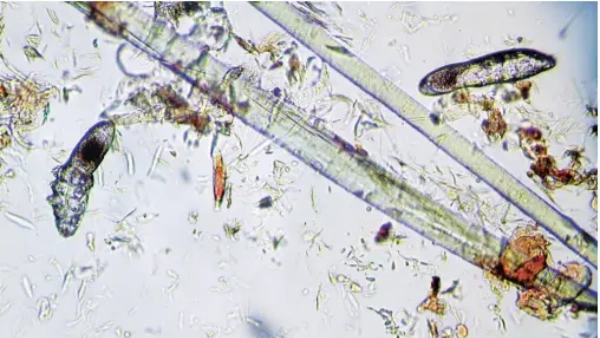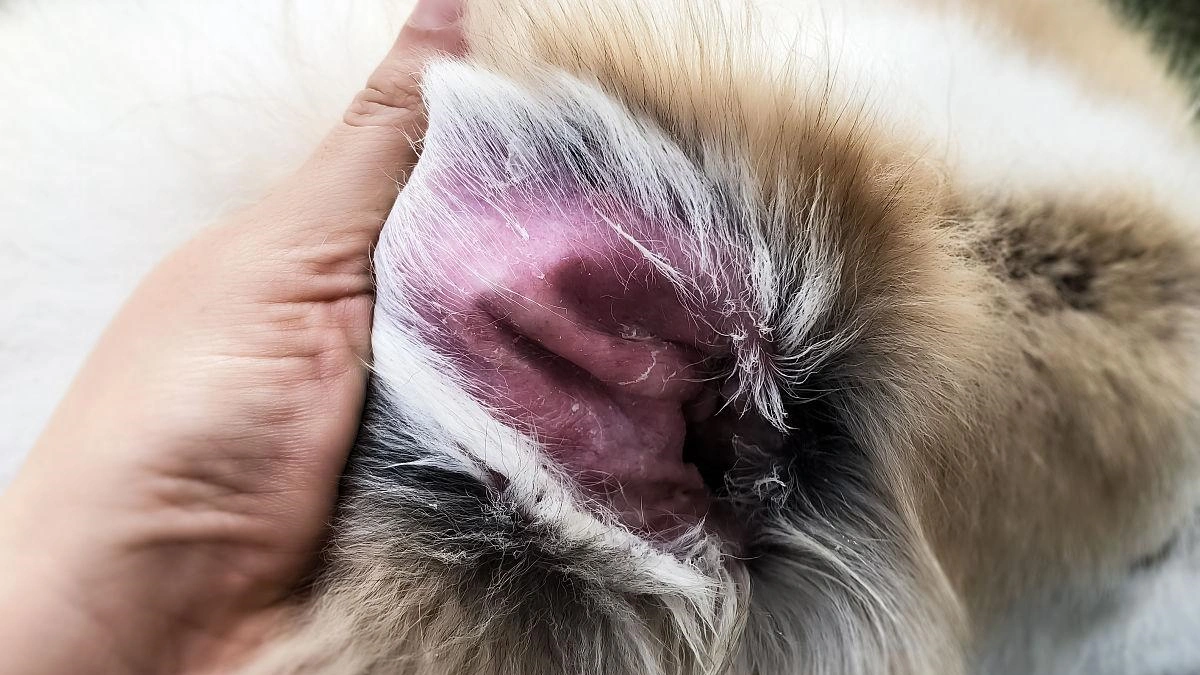4 Vet-Approved Spray for Mites on Dogs (2025 Guide)
Seeing your dog constantly scratch, shake its head, or lose hair is alarming — these are common signs of mites and skin discomfort, and untreated mite infestations quickly worsen; the good news is a well-chosen spray for mites on dogs combined with proper home care can stop the cycle, calm itching, and help your pet heal. This guide walks you step-by-step through product types (from vet-grade anti mite spray for dogs to gentle natural mite killer for dogs), safe application, household cleaning and when to see your veterinarian.
How Mite Infestations Start and Which Types to Watch For
Why dogs get mites
Direct contact with another infected animal or contaminated bedding.
Weakened immunity in puppies, seniors or dogs on medication.
Poor hygiene, damp environments or high wildlife exposure.
Common mite types
Sarcoptic mange (scabies) — intense itch, red bumps, crusting.
Demodex — patchy hair loss, thickened or oily skin.
Ear mites — head shaking, dark crumbly ear debris.
Identifying the mite type matters because treatment and prognosis vary. A targeted spray for mites on dogs can be effective for many surface infestations, but some cases need oral medication or vet-administered injections.

What a Spray for Mites on Dogs Does
Primary actions
Kills adult mites and reduces larvae and eggs on fur and skin.
Provides temporary itch relief with soothing additives.
Acts as part of an integrated plan: treat the dog, treat the home.
Active ingredient categories
| Type | Common active | Strengths | When to use |
|---|---|---|---|
| Chemical | Permethrin (note: toxic to cats), pyrethroids | Fast, powerful kill | Severe infestations (dogs only) |
| Veterinary prescription | Isoxazoline compounds, selamectin (topical) | Clinically validated, long-lasting | Vet-diagnosed mite disease |
| Natural | Tea tree oil combos, neem, citrus extracts | Milder, fewer side effects | Prevention or mild cases; puppies with vet OK |
How to Choose the Right Product
Match product to diagnosis
For scabies or heavy Demodex, vet-guided topical or systemic therapy is best — ask about an approved anti mite spray for dogs.
For light infestations and ongoing prevention, a well-formulated natural mite killer for dogs can be appropriate.
Never use dog products on cats; many dog sprays are toxic to cats.
Safety checklist
Read the label for age limits, pregnancy or lactation warnings.
Check for contraindications if your dog is medicated or has skin disease.
Prefer vet-recommended brands when in doubt.

Step-by-Step: How to Use a Mite Spray Safely
Preparation
Brush loose hair and debris away from affected areas.
Clean very dirty or oozing skin gently with a mild cleanser; pat dry.
Wear gloves and ensure good ventilation for aerosol sprays.
Application
Hold the bottle 8–12 inches from the fur.
Spray lightly and evenly over the affected area; do not saturate.
Massage the spray into the base of the coat so it reaches the skin.
Avoid eyes, nostrils, mouth and inside the ear canal.
Aftercare
Prevent the dog from licking treated areas for at least 30–60 minutes (consider an Elizabethan collar if needed).
Wash hands and store the product safely away from children and pets.
If signs worsen or new symptoms appear, stop use and consult your vet.
Frequency and Treatment Length
Follow label or vet instructions—typical cycles run 7–14 days for topical sprays.
For severe infestations, sprays are often part of a multi-week veterinary regimen that may include oral meds.
Prevention sprays can be used weekly or biweekly depending on product guidance.
Household Control: Clean the Environment
Why environmental control matters
Mite eggs and larvae live off the host in bedding and carpets. Treating only the animal without cleaning the home often leads to recurrence.
Practical steps
Wash bedding, toys and removable covers in hot water weekly.
Vacuum carpets, upholstery and vehicle interiors thoroughly — dispose of vacuum bag or empty canister outside.
Use pet-safe home sprays or foggers designed for mites if recommended by your vet.

When to See the Vet
No improvement after a full indicated treatment course.
Signs of secondary infection: pus, odor, fever, lethargy.
Puppies, pregnant or nursing dogs — veterinary oversight is essential.
Everything Our Vets Recommend
Common Questions — Spray for Mites on Dogs FAQs
Can household sprays alone cure a mite infestation?
No. Household sprays help reduce environmental burden but rarely cure an established infestation on the dog alone. You need a targeted spray for mites on dogs or veterinary treatment for the animal plus home cleaning.
Are natural sprays safe and effective?
Natural mite products can be safe and useful for prevention and mild cases. However, in moderate to severe infestations a vet-recommended anti mite spray for dogs or prescription therapy is often necessary.
Can I use the same spray on multiple pets?
Only if the product label explicitly allows multiple animals and it is safe for each species in the household. Many dog sprays are toxic to cats; check labels and consult your vet.
Final Notes
A carefully chosen spray for mites on dogs, used correctly and paired with thorough home cleaning and veterinary guidance when needed, usually controls most mite problems. For severe or persistent cases, a vet exam and possibly prescription systemic therapy will give the fastest, most durable results. Prioritize products with clear safety data, avoid cross-species use (dog sprays on cats), and keep up preventive hygiene to reduce recurrence.
You May Like:
- Flea Spray for House Pet Safe – What Really Works Best?
- Best Flea and Tick Spray for Dogs and Cats (2025 Update)
- Yeast Infection Ear Mites in Dogs: Causes and Treatments
- Dust Mite Treatment for Dogs: What Vets Want You to Know
User Comments
Does flea treatment kill ear mites too?
Can dogs take human probiotics?
Can dogs have people probiotics safely?
Related Articles
View all
How to Get Rid of Dog Allergies Naturally: Common Mistakes

Dog Allergic Reaction Eye Swelling: Hidden Mistakes to Avoid

Why Do Bulldogs Scratch? Bulldog Skin Allergies Guide

Cure for Dog Skin Allergies Owners Often Miss

How to Get Rid of Dog Allergies Naturally: Common Mistakes

Dog Allergic Reaction Eye Swelling: Hidden Mistakes to Avoid

Why Do Bulldogs Scratch? Bulldog Skin Allergies Guide

Cure for Dog Skin Allergies Owners Often Miss

Vet-Recommended Wet Dog Food for Sensitive Stomachs — 2025 Guide

Dog Dust Mite Allergy: Symptoms, Treatment, Prevention

Can Allergies in Dogs Cause Diarrhea and Vomiting? Explained

10 Pitbull Health Problems You Should Know in 2025 — Tips














Leave a Reply